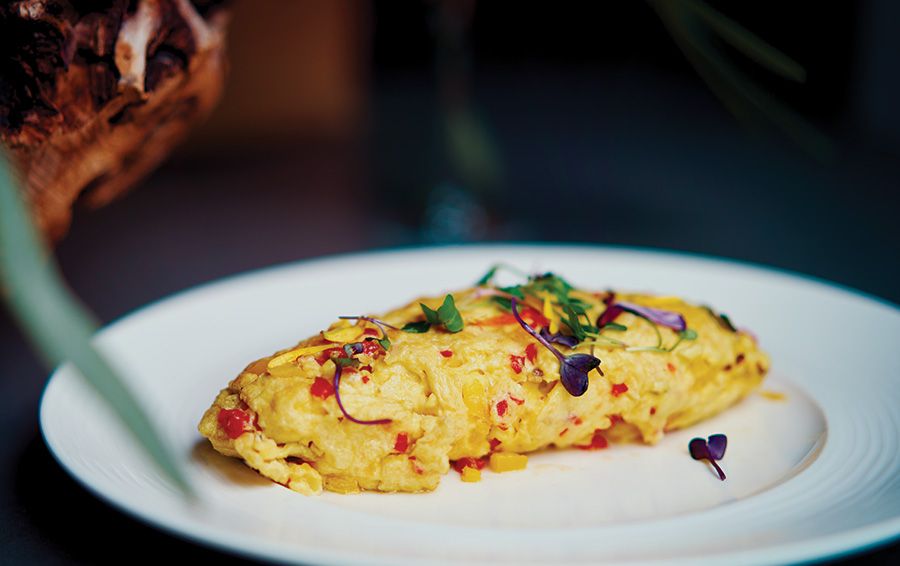Among the many accomplishments of Jacques Pépin’s illustrious career was the publishing of La Technique, the cookbook that would codify the tricks of the kitchen trade and cement him as one of the most skilled chefs of the 20th century. Many of his recipes and techniques set the standard for classic French cuisine, and one of those recipes would go on to serve as a diagnostic tool among classically trained chefs, though it would surprise the uninitiated what that dish is. It is not a Béarnaise sauce or boeuf bourguignon, not coq au vin or Baked Alaska—it is the classic French omelet. And with only four core ingredients, the dish relies almost entirely on the skill of its maker to ensure the perfect preparation.
“It’s very simple and complicated at the same time,” says Chef José Martinez of Maison Blanche, whose French accent seems to bolster his credibility, almost as much as the Michelin star awarded to his former Parisian restaurant. The technique begins with three or four eggs, preferably farm fresh to ensure consistency in texture and color. The expert chef cracks the eggs on a flat surface (not the edge of the bowl) and beats them until there are no striations. A pinch of salt and pepper join the mix, and Pépin allows for herbs like chives, chervil, tarragon or parsley. It all seems rather simple up to this point, but when egg meets pan, master chefs are separated from acolytes.
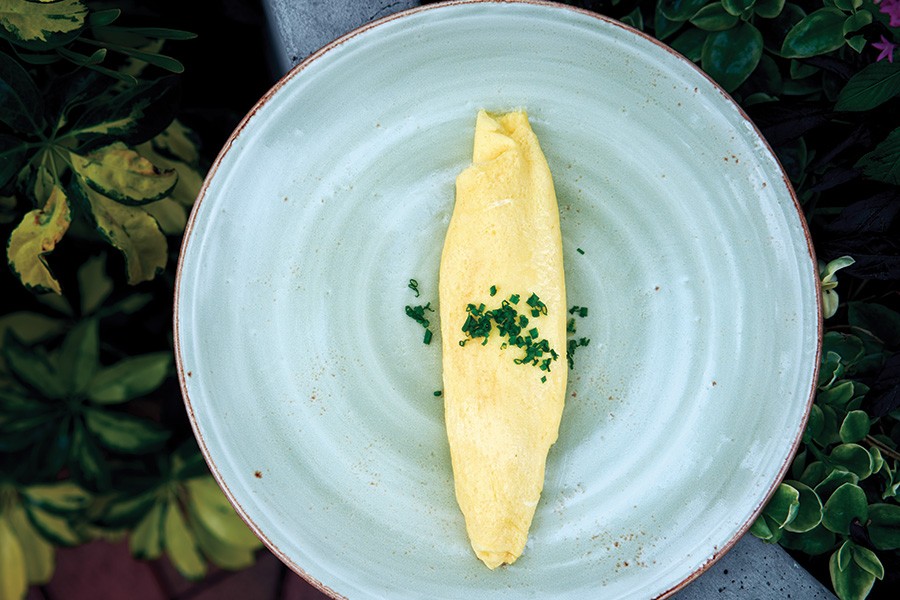
Over medium-high heat, a tablespoon of butter (olive oil works as a substitute) melts but does not burn its way into beurre noisette. Then the eggs are poured in. Now, the pan must remain in constant motion as the chef continues stirring the eggs, ensuring no large curds form and that the omelet does not brown. The delicate dance requires unbroken attention. “It’s definitely not something you want to walk away from,” says Chef Nils Tarantik of Element, another local legend and a graduate of Johnson & Wales University. Once the seasoned chefs determine the pan side of the omelet has had enough, they grab the pan’s handle from underneath, remove it from the stove and tilt it over the plate on which it will be served. The omelet is carefully folded into a half-moon, with expert care given to the integrity of the delicate outer layer. Finally, the almond-shaped loaf of fluffy eggs comes to rest in all of its pastel yellow glory.
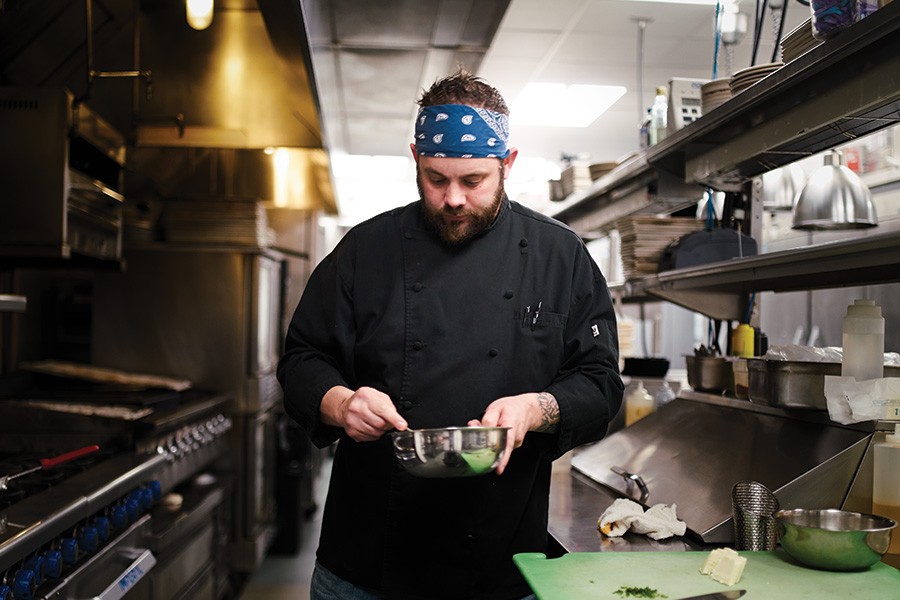
“The French omelet is how I determine who to hire,” says Chef Chris Covelli of Sage, who immediately built a reputation as one of the most inventive chefs in Sarasota’s fine-dining scene. “Don’t even think about boiling water if you can’t cook an egg,” he says. Each chef prepares the omelet in roughly the same way, with small variations in utensils or in seasoning, but their final platings all share the essential elements prescribed by Pépin—uniformly yellow all the way through, creamy in the center with a paper-thin outer layer and tapered on the ends. And any additional seasonings (or lack thereof) showcase a bit of each chef’s personality.
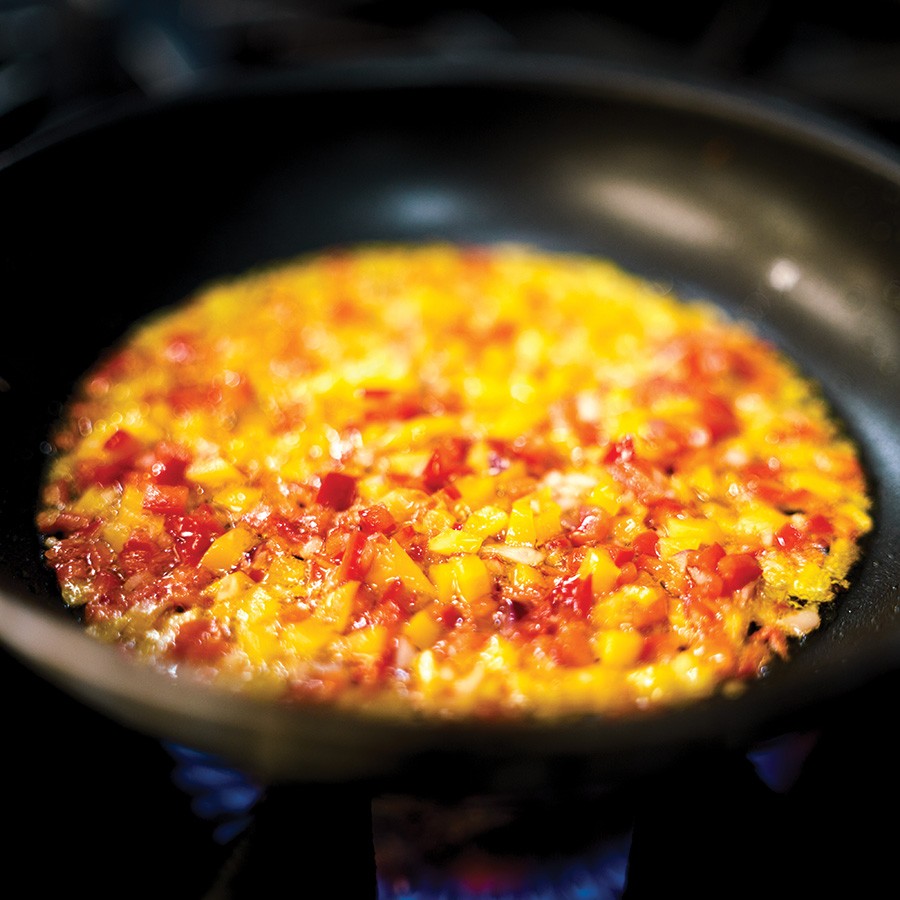
It might not surprise anyone that Martinez prefers his omelet archetypal. “For me, it’s the best,” he says, “but we are all different.” He sees the simple, classic version as the perfect symbol of his belief that if great ingredients are used, they should not be hidden behind an ostentatious use of herbs and spices. “I want to really taste the egg,” he says. For Tarantik, who paid homage to his Swedish roots by garnishing his French omelet with dill, the dish epitomizes his entire aim with Element’s menu. “There’s no hiding behind smoke and mirrors,” he says, “it’s just simple elegance, which is how I approach everything.” Covelli, though well-versed in the strictures of classic French cuisine, is a bit more playful. Well-known for his blending of food genres, he may find himself unable to resist the urge to unseal a pouch of white truffles picked less than 24 hours ago in Italy’s Piedmont region, shaving a bit onto the omelet for a punch of pungent decadence.
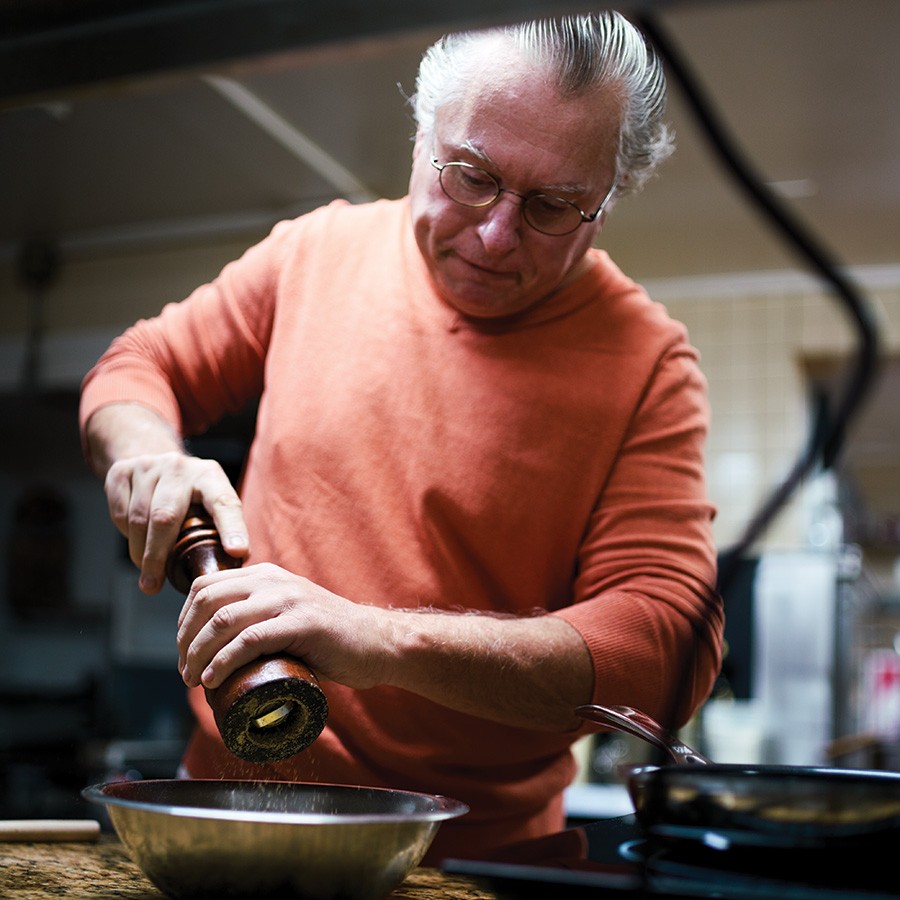
The classic French omelet presents an interesting window into the ethos of elite chefs. If the ingredient list is small, the margin for error is smaller—so, technique becomes the priority to get the perfect consistency, consistently. Though their menus are drastically different, the omelet exposed the three executivechefs as a special subspecies of human with a predisposition for culinary perfection, the pursuit of which borders on the fanatical. But, for Martinez, Tarantik and Covelli, preparing a meal for their guests is more than just an obsession. “There is a lot of darkness in the world,” says Martinez, “so it’s nice to be able to make something beautiful, even if it’s a simple omelet.” SRQ
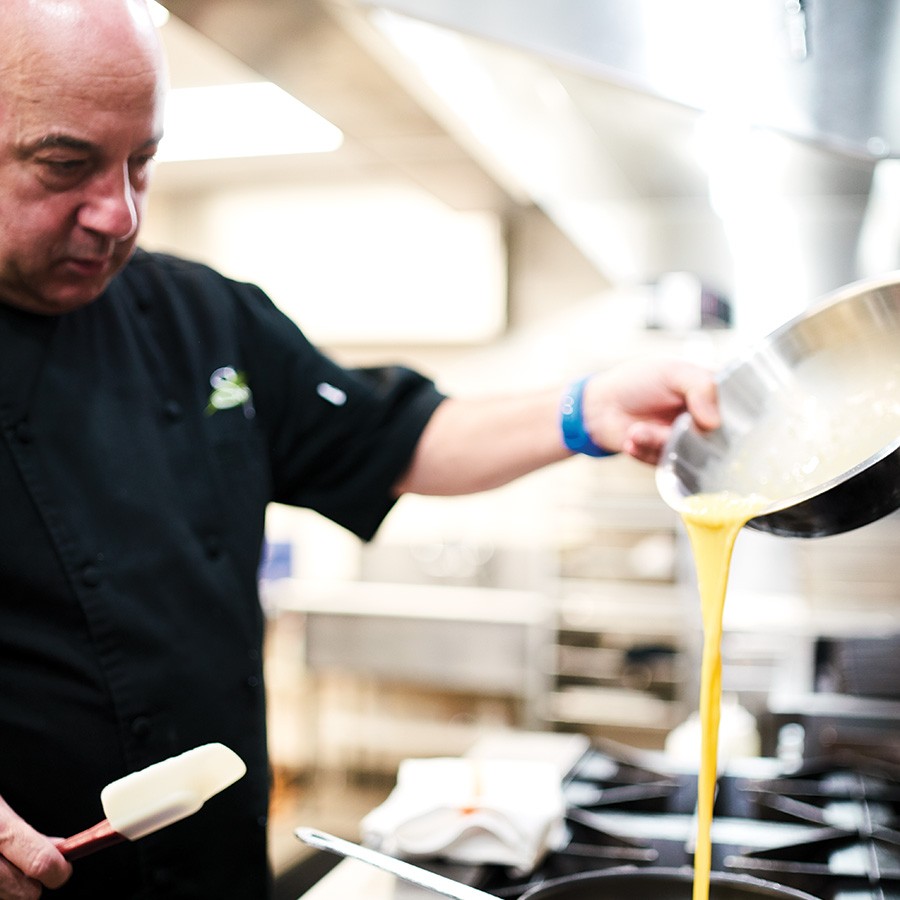
Sage, 1216 1st St, Sarasota, 941-445-5660, www.sagesrq.com; Element: Modern Mediterranean Grill, 1413 Main St, Sarasota, 941-724-8585, www.elementsrq.com; Maison Blanche, 2605 Gulf of Mexico Drive, Longboat Key, 941-383-8088, www.themaisonblanche.com




